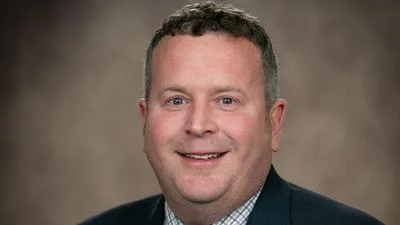Stan Lynall Managing Director, Venture Investments, OSF Ventures | Official Website
Stan Lynall Managing Director, Venture Investments, OSF Ventures | Official Website
A senior official from the American Telemedicine Association (ATA) has called on Congress to make digital health policy permanent, following a lapse in Medicare telehealth access that affected millions of patients in early October.
Kyle Zebley, senior vice president of public policy for the ATA and executive director of ATA Action, addressed health care professionals and students at the Jump Trading Simulation & Education Center in Peoria, Illinois. He explained that the disruption was not due to technology or provider readiness but resulted from government inaction.
“On October 1st, patients across the country woke up to discover they had lost access to their doctors overnight,” Zebley said. “Not because of a technological failure or malpractice, but because of politics. That morning of October 1st, Medicare telehealth flexibilities, the lifeline that millions of Americans had come to rely on, simply expired.”
The loss primarily impacted Medicare fee-for-service beneficiaries and hospitals participating in federal programs such as Acute Hospital Care at Home. OSF HealthCare Saint Francis Medical Center in Peoria was among those affected after Congress did not extend pandemic-era telehealth flexibilities. While private insurers and Medicaid largely continued virtual care coverage, providers and patients faced uncertainty due to federal policy changes.
During his keynote at the OSF OnCall Digital Health Symposium, Zebley described the situation as “a product of dysfunction, delay, and short-term thinking,” noting bipartisan support for telehealth under both recent presidential administrations. He highlighted how broader political disputes led to a breakdown affecting health services.
On day 41 of a record-long government shutdown, the U.S. Senate passed a continuing resolution by a 60-40 vote to reopen the government through January 30 for most agencies and provide funding through next September for others. The measure included an extension allowing Medicare recipients continued access to telehealth services.
Zebley urged lawmakers to move beyond temporary solutions: “In the short term, it’s going to continue to threaten at least to be the rollercoaster that it has been in 2025. We have two political parties at total loggerheads – putting aside their agreement on the efficacy of telehealth and virtual care services – they disagree about almost everything it would seem.”
He recognized OSF HealthCare's leadership in digital health innovation: “OSF has continued, through OnCall (its digital health arm), to really push the boundaries of their workforce and push the boundaries of increasing their capacity to do more good for more patients wherever those patients might be. They really are the gold standard in the use and deployment of technology.”
Zebley argued that ongoing reliance on temporary congressional measures undermines planning for hospitals like OSF HealthCare as well as clinicians and patients.
His vision includes establishing a stable regulatory environment supporting “digital-native, AI-enabled” healthcare systems where continuous data-driven care is possible. Zebley said advances such as remote monitoring and AI-assisted diagnostics require policies that keep pace with technology developments.
“So that our fellow citizens, yourselves included, can lead healthier, better lives with more individualized care treatment that really is able to take advantage of the massive reams of data that our health care system can and does produce and come up with bespoke health care plans for them that meets them where they are,” he said.
Zebley emphasized that lack of permanent policy slows innovation and limits patient access. The ATA is working through national coalitions—including its Advocacy Council—to press for long-term reforms ensuring stable digital health access across party lines.
Through its Center of Digital Excellence, ATA continues collecting data showing telehealth’s safety record and role in expanding healthcare despite workforce shortages.
Despite current setbacks, Zebley expressed optimism Congress will eventually enact permanent telehealth coverage due its popularity among patients as well as its efficiency and cost-effectiveness.





 Alerts Sign-up
Alerts Sign-up